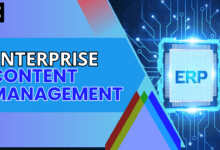Business Growth
January 20, 2024
10 Reasons Why Having a Solid Organizational Structure is Crucial to a Successful Business
The importance of a structure cannot be underestimated when it comes to achieving success, in…
Reviews
October 24, 2023
Yocale Review – Pros, Cons, and Features
Yocale is our choice for the best online appointment scheduling and business management for medical…
Business Solutions
October 12, 2023
Pro Tips for Mastering Property Management Skills
Property management can be profitable and rewarding but also comes with many difficulties. Having the…
Sale & Marketing
September 27, 2023
4 Ps of Marketing – You Need to Understand
The 4 Ps of marketing, Product, Price, Place, and Promotion are the four elements that…
Business Security
September 27, 2023
Cybersecurity Measures to Protect Sensitive Business Data
Cybersecurity measures are like a shield that helps protect this valuable data. These measures include…
Human Resources & Management
September 23, 2023
Types of Difficult Coworkers and How to Work with Them
Do you work with challenging coworkers? You know, the kind of coworkers you try to…
Legal & Compliance
September 22, 2023
Risk Management Tips for a Volatile Business Environment
The importance of risk management in today’s fast-paced business world cannot be emphasized. Rapid changes…
Operations & Supply Chain
September 21, 2023
Strategies for Effectively Taking Care of Business Operations
Business Operations include everything that must be done to keep the company running and profitable.…
Business Growth
September 20, 2023
Essential Strategies to Build Your Brand as an Entrepreneur
The personal brand can significantly impact their entrepreneurial success. The importance goes beyond your business…
Logistics & Distribution
September 19, 2023
Ways Technology is Revolutionizing Package Delivery
Technology is a highly effective source of fast delivery flexibility. For example, when customers are…




















